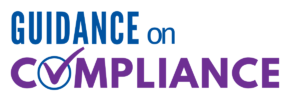The Patient-Driven Groupings Model (PDGM) is the Home Health Prospective Payment System (HH PPS) used for reimbursement that went into effect on January 1, 2020.
Before PDGM, the HH PPS was based on the therapy volume as a threshold for reimbursement. With PDGM, the reported diagnoses (ICD-10-CM), and specific items coded on the Outcome and Assessment Information Set (OASIS) represent the patient characteristics to determine reimbursement.
PDGM uses 30-day periods as the basis for reimbursement, categorized into 1 of 432 case-mix groups. The reimbursement calculation for each 30-day period is adjusted based on the following:
- Admission Source (from the claim) à Community or Institutional
- Timing (from the claim) à Early or Late
- 12 Clinical Groupings (from the claim) à the reported Primary Diagnosis
- Functional Impairment Level (from the OASIS items) à Low or Medium or High
- Comorbidity Adjustment (from the claim) à up to 24 secondary diagnoses can be listed
The primary diagnosis must support the main reason for home health services. This ICD-10-CM code reported on the claim must fall into one of the 12 Clinical Groups. The Clinical Groups are shown in the chart below:
| Clinical Group | Description | Main Reason for HH Encounter is to Provide |
| 1 | Musculoskeletal Rehabilitation Therapy | (PT/OT/SLP) for a musculoskeletal condition |
| 2 | Neuro/Stroke Rehabilitation Therapy | (PT/OT/SLP) for a neurological condition or stroke |
| 3 | Wounds-Post op Wound Aftercare and Skin/Non-Surgical Wound Care | Assessment, treatment, and evaluation of a surgical wound(s); assessment, treatment, and evaluation of non-surgical wounds, ulcers, burns, and other lesions |
| 4 | Complex Nursing Interventions | Assessment, treatment, and evaluation of complex medical and surgical conditions (e.g., ostomies, TPN) |
| 5 | Behavioral Health Care | Assessment, treatment, and evaluation of psychiatric and substance abuse conditions. |
| MMTA – Medication Management Teaching Assessment | ||
| 6 | MMTA – Surgical Aftercare | Assessment, evaluation, teaching, and medication management for a variety of medical and surgical conditions not classified in one of the previous groups. The subgroups represent common clinical conditions that require home health services for medication management, teaching, and assessment. |
| 7 | MMTA – Cardiac/Circulatory | |
| 8 | MMTA – Endocrine | |
| 9 | MMTA – GI/GU | |
| 10 | MMTA – Infectious Disease/Neoplasms/Blood- forming Diseases | |
| 11 | MMTA – Respiratory | |
| 12 | MMTA – Other | |
(MLN Matters. (2019, November 25). Overview of the Patient-Driven Groupings Model.)
Each of these Clinical Groups has diagnosis codes that the Centers for Medicare and Medicaid Services (CMS) consider acceptable.
Suppose the claim has a primary diagnosis that is unacceptable or ungroupable, meaning this ICD-10-CM code does not belong to any of the 12 Clinical Groups. In that case, the claim would be returned to the home health agency. Home health agencies must be aware of these unacceptable, ungroupable ICD-10-CM codes that CMS updates periodically.
Before PDGM, the therapy treatment diagnoses has been commonly used as the primary diagnosis, such as M62.81–Muscle weakness (generalized); R26.89–Other abnormalities of gait; R26.8– Unsteadiness on feet; and R13.12–Dysphagia, oropharyngeal phase. With PDGM, the claim could still include these therapy ICD-10-CM codes but not as the primary diagnosis. Most of the therapy treatment diagnoses are unacceptable or ungroupable codes.
Assigning ICD-10-CM codes must be at the highest degree of specificity based on the provider’s documentation. It is essential to communicate with the provider to ensure that necessary information is documented in the medical record to identify the appropriate ICD-10-CM codes, specifically the primary diagnosis. Have open communication with your provider. If the provider refers a patient with a primary diagnosis of weakness, query the provider for the underlying medical condition causing the patient to be weak, since weakness is a symptom code. From there, you would be able to identify the appropriate primary diagnosis that would group into one of the 12 Clinical Groups under PDGM.
How Can LW Consulting, Inc. Help?
LW Consulting, Inc. (LWCI) can provide customized training for your agency on the ICD-10 coding and OASIS accuracy documentation and decisions. Our experts can also conduct chart audits for coding accuracy.

